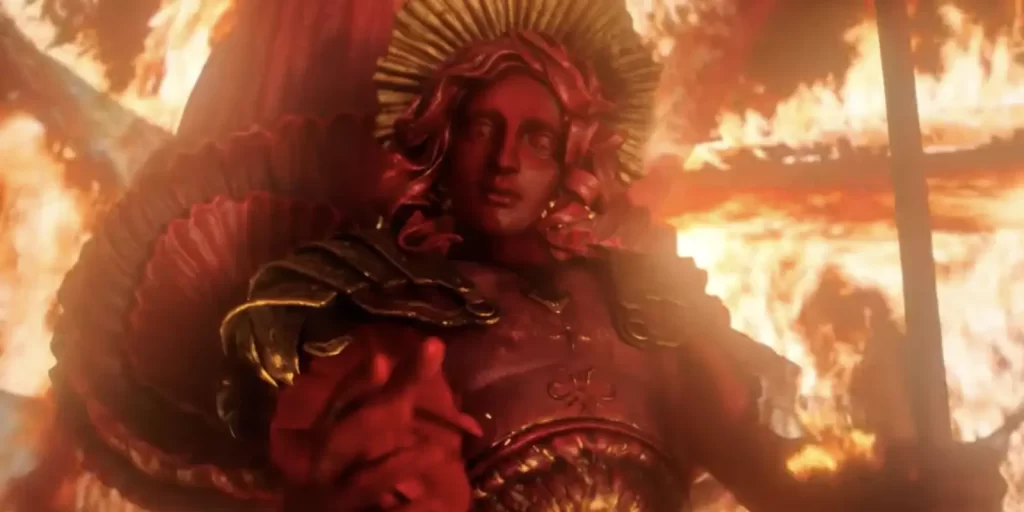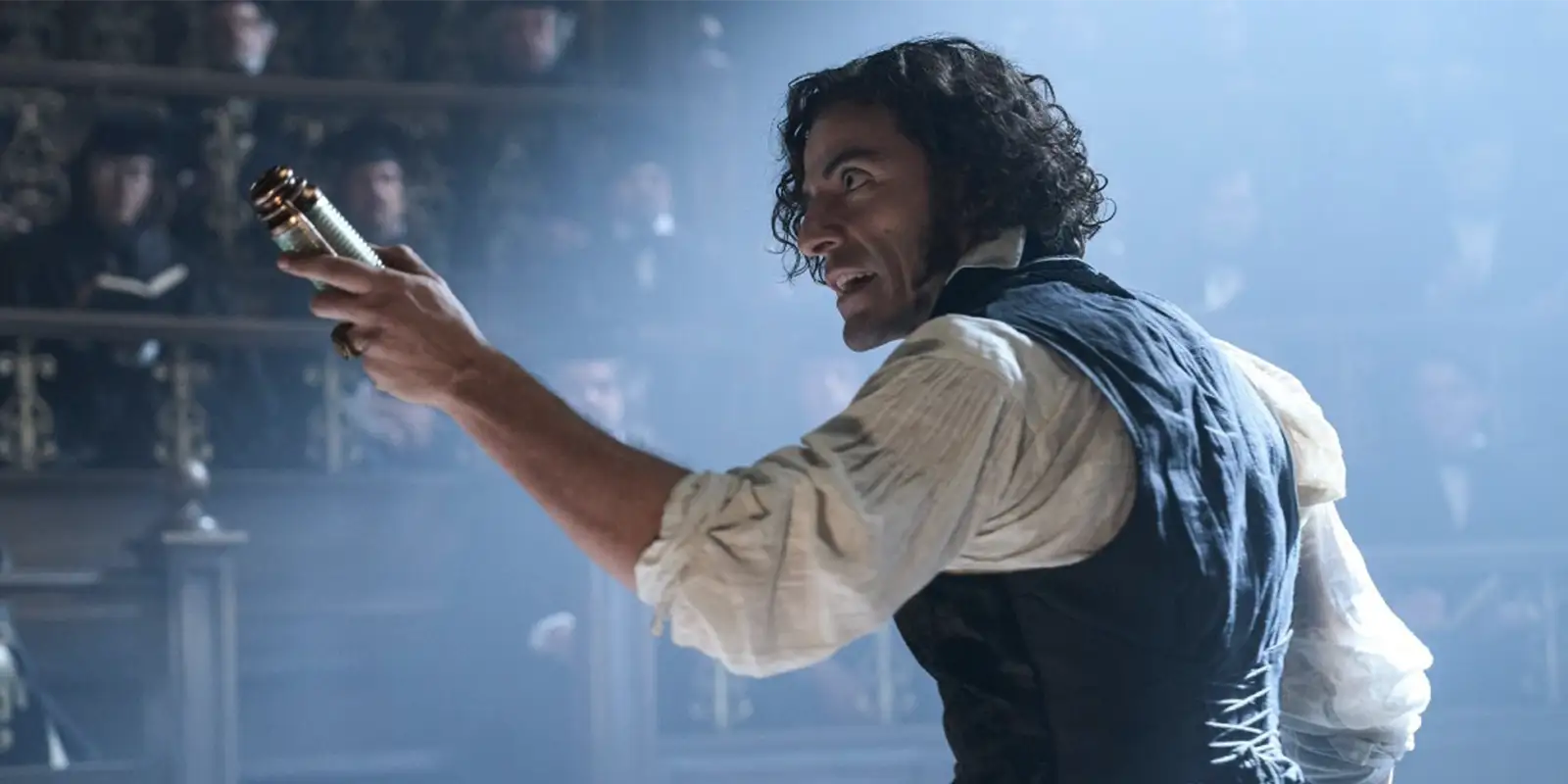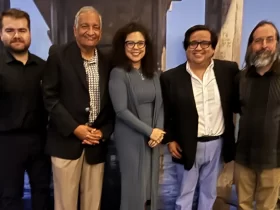There are premieres that hit the film world like an earthquake, the kind that make even the most skeptical viewers jump out of their seats. And that’s exactly what happened at the Venice Film Festival with Frankenstein, Guillermo del Toro’s latest work: pure history.
Last weekend, at the 82nd edition of the festival, the Mexican director finally presented the adaptation he has been dreaming of for more than three decades. The result was so impressive that the room erupted in applause, leading to an ovation that lasted 13—some even say 14—minutes. And if you know a little about festival jargon, you know what that means: it’s not polite applause, it’s recognition that the audience was shaken by something extraordinary.
A child’s dream turned into a movie

For Guillermo del Toro, Frankenstein is not just any project. It is the culmination of an obsession that began when he was just a child in Guadalajara. At the age of seven, he saw James Whale’s classic film (1931) for the first time, and at eleven, he tackled Mary Shelley’s novel. Since then, the misunderstood creature and its tormented creator have become more than just literary characters: they have been mirrors in which Del Toro has learned to recognize himself.
“It was forgiveness for being imperfect,” confessed the director, recalling how he felt when he saw Boris Karloff play the monster. That empathy for the strange, the marginalized, and the fragile has permeated his entire filmography: from the dark poetry of The Devil’s Backbone and Pan’s Labyrinth to the fantastical tenderness of The Shape of Water. But Frankenstein is where it all began.
That’s why he’s not exaggerating when he says, “It’s the film I’ve been training for for 30 years.”
The cast of a gothic banquet
Part of the film’s magnetism lies in its stellar cast. Oscar Isaac plays Victor Frankenstein, the brilliant scientist blinded by his ambition, while Jacob Elordi brings to life the monster, a being as tragic as he is innocent. They are joined by Christoph Waltz, Mia Goth, Felix Kammerer, and a soundtrack by Alexandre Desplat.
Isaac said that before filming, Del Toro told him, “I’m creating a banquet for you, you just have to come and eat.” And that metaphor sums up what it means to work with the Mexican director: entering a visual and emotional universe that leaves nothing to chance.
Elordi, for his part, revealed that playing the creature was like baring himself in front of the camera. “That monster on screen is the purest version of myself,” he confessed. And judging by the reaction in Venice, it seems that the audience was able to perceive that brutal honesty.
A premiere with tears and ovation
The premiere in the Sala Grande at the Lido was a spectacle in itself. The screening was attended by stars, Netflix executives, and even other renowned actors such as Aaron Taylor-Johnson and Sofia Carson. But the climax came at the end: the audience stood up and applauded nonstop for more than a quarter of an hour.
Del Toro and Elordi couldn’t hold back their tears. And it’s understandable. Imagine dedicating three decades of your life to a project, carrying it in your heart like a secret, and suddenly seeing thousands of people receive it with such passion.
In Venice, they weren’t just applauding a movie: they were celebrating the culmination of a lifetime of love for monsters.
Frankenstein: a timeless story, a personal perspective
Dozens, perhaps hundreds, of versions of Frankenstein have been made. Some more successful than others. But what sets Del Toro’s vision apart is the intensity with which he connects Shelley’s novel to his personal obsessions.
For him, Victor Frankenstein is not simply “the mad scientist” of so many caricatures, but a much more complex figure, halfway between artist and showman. Oscar Isaac even commented that he was inspired by Prince’s stage presence during a Super Bowl rehearsal to imagine how his character should move in the laboratory.
And the monster, far from being just a terrifying beast, is a deeply human creature, with the innocence of a child and the pain of someone who can never find a place in the world. Sound familiar? That’s the mark of El Toro: reminding us that monsters speak to us about ourselves.
The road to the awards
Netflix has already set the date: Frankenstein will have a limited theatrical release on October 17, before arriving on the platform on November 7. And everything points to it being the company’s big bet for awards season.
It’s not a risky move. Remember that The Shape of Water already won Del Toro the Oscar for Best Picture in 2018, and that Pinocchio (2022) won him the award for Best Animated Feature. Hollywood knows how to recognize when a director delivers not just a film, but a piece of himself.
What can we expect as viewers?
Beyond the awards and publicity machine, what excites film buffs is the opportunity to see Del Toro tackle his personal myth. It will be a gothic film, with imposing sets, meticulously detailed costumes, and an atmosphere that promises to be a visual feast. But above all, it will be an intimate story about loneliness, fatherhood, and human imperfection.
Del Toro said it best: Frankenstein is a book that changes with you. As a child, he saw himself in the creature. As an adult and a father, he has also learned to understand the creator. And now he invites us all to step into that mirror, to recognize ourselves in the monstrous and the beautiful at the same time.
When it premieres in October, get ready for more than just a horror story. Get ready for an emotional journey, a confession disguised as Gothic and, perhaps, the most personal work of one of the most beloved directors of our time.
Because if Del Toro and his creature teach us anything, it’s that, at the end of the day, we’re all a little bit monstrous, searching for our place in the world.








































Leave a Reply